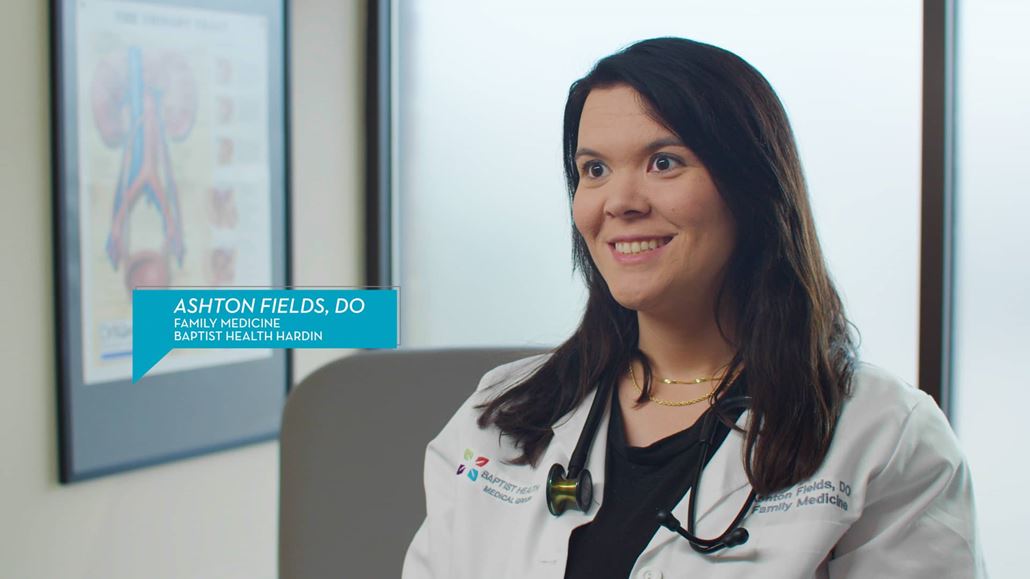Preventing HPV in Elizabethtown, KY

Ashton Fields, DO, Family Medicine
Baptist Health Hardin
Ashton Fields, DO:
HPV is the human papillomavirus. It is a virus that is very common, affecting approximately 85% of people throughout their lives. Everyone's at risk, both men and women. Initially, people used to associate it more with women when thinking about cervical cancer, but it's also found in men, causing other types of cancer, including oropharyngeal, anal and rectal cancers.
Unlike other sexually transmitted infections that are often transmitted by bodily fluids, HPV is transmitted through intimate skin-to-skin contact. For prevention, we do have an HPV vaccine. It has been highly tested and reviewed over the past 15 years. It's been found to be safe. It is typically given around 11 or 12 years of age, but it is FDA approved to give up to the age of 45 for both men and women for those at a higher risk. We prefer to get the vaccine in the child's system before they are at increased risk from being sexually active. If the first dose of the HPV vaccine is given before the age of 15, it's a two-dose series. One is given, and then six to 12 months later, a second dose is given. This gives you complete immunization and you should not need any boosters later in life.
In summary, it's very important to have this discussion with your or your child's primary care provider to discuss the risk and benefits of the HPV vaccine and to discuss the complications that can occur down the line from having an HPV infection.



